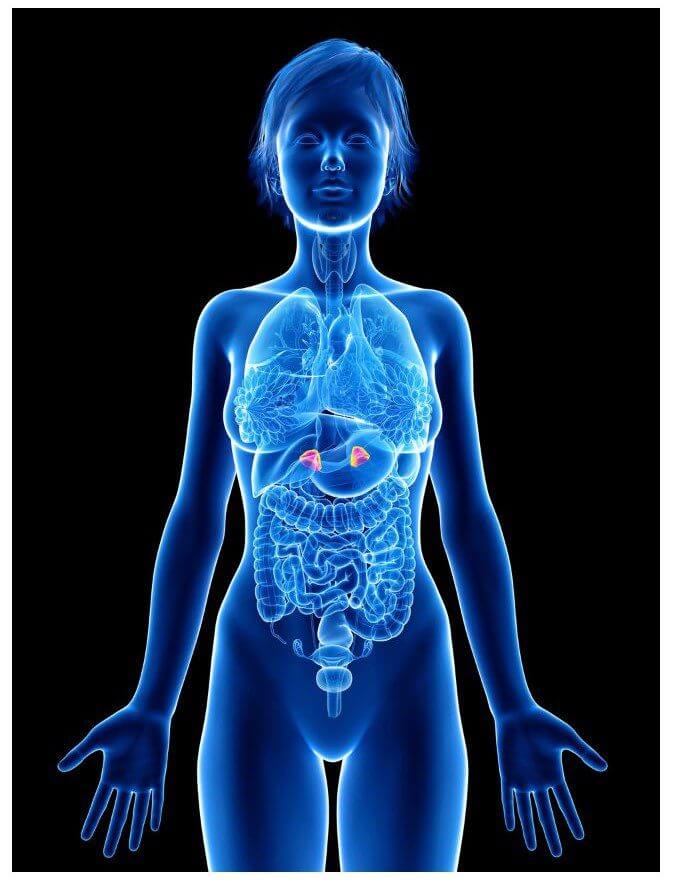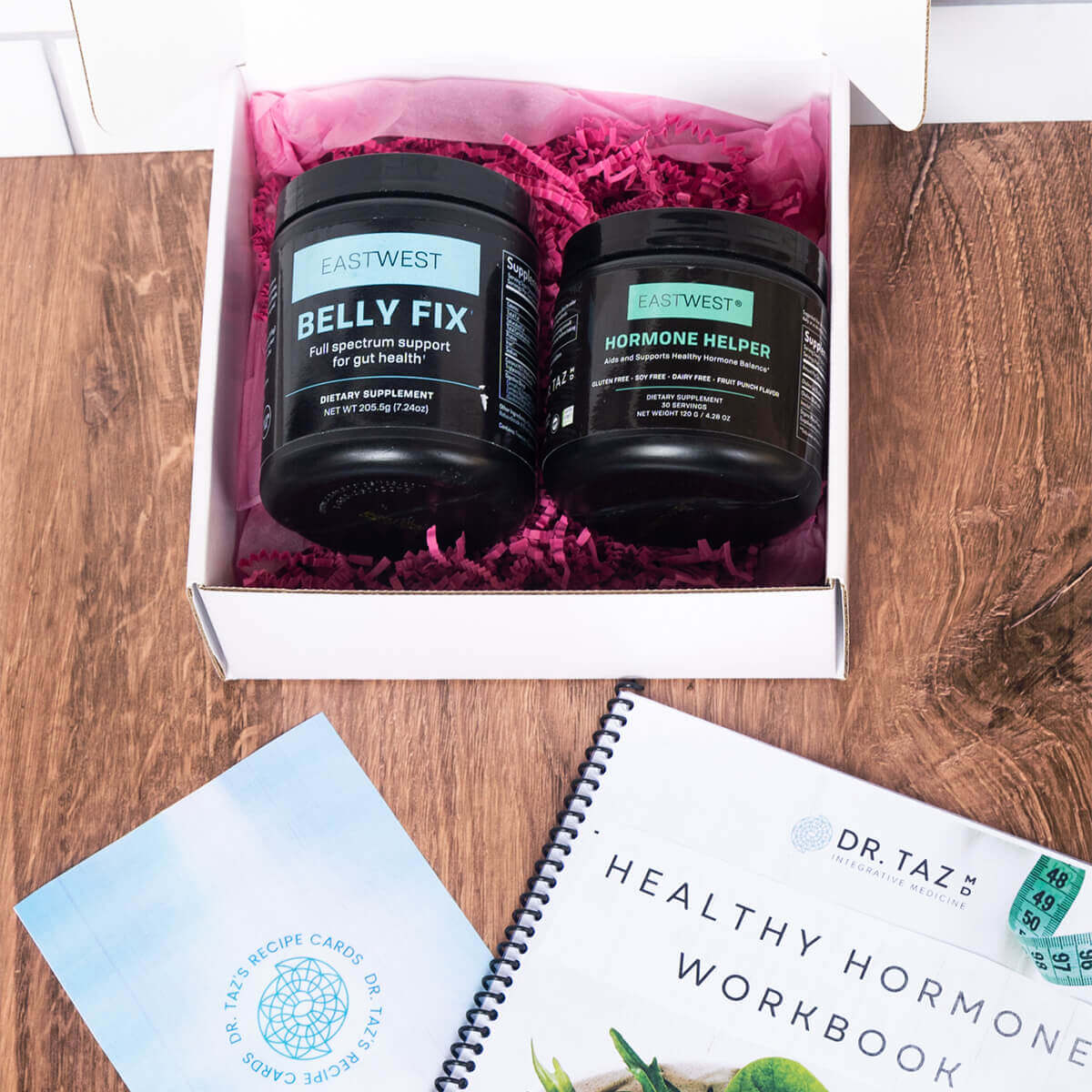Adrenal Fatigue Vs. Perimenopause: Balancing Stress Hormone for Symptom Relief
It’s no secret that perimenopause can be a challenging time. Between fluctuating hormones and the symptoms that can make it feel like you’re hitting puberty all over again (hello, hormonal acne?!), it’s hard not to feel out of control. Which is why it’s so important to do everything you can to stack the deck in your favor to balance the hormones that control how you feel during the transition to menopause.
If you thought your only choice was to sit back and brace yourself for a hormonal roller coaster, think again! In the next few paragraphs you’ll learn how your adrenal glands control menopause, why cortisol & insulin are the ultimate perimenopause regulators, and how to balance them for fewer symptoms.
For a personalized road map to better hormone balance—whether you’re in the thick of perimenopause or you want to be proactive—learn more about the Superwoman Circle.
What’s really going on with your hormones during perimenopause?
The first hormone to decline at the start of perimenopause is progesterone, followed by estrogen. This shift doesn’t happen predictably, or gradually, and can trigger menopausal symptoms like hot flashes, missed periods, spotting, migraines, sleep disturbances & insomnia, and even heart palpitations.
During perimenopause, it’s common to feel like something is really wrong with your health, especially if you’re experiencing extreme symptoms, which is what drives many women to seek the conventional medical advice of their doctor.
Unfortunately, conventional Western medicine has failed to find safe, effective solutions to perimenopause and menopause symptoms. As you look for answers, you’re likely to be met with solutions like taking antidepressants and hormone therapy, advice to power through it, or just learn to live with it.
With a more whole-body, holistic approach, you can find the answers to what’s going on inside your body and how to feel more like yourself again.
Learn more: What to Expect During Perimenopause
The perimenopause–adrenal connection explained

There are two hormones you need to know if you’re nearing perimenopause, or already experiencing it: cortisol and insulin. Cortisol is produced and released by the adrenal glands, and insulin is made in the pancreas. Both can impact one another, and dramatically impact the onset, severity, and duration of perimenopause.
During perimenopause, production of estrogen and progesterone transitions from the ovaries to the adrenal glands (1). As the adrenal glands take over hormone production, this is when trouble arises with hormone imbalance. Many women enter perimenopause with depleted adrenal function, during a time of already high stress. As a result, their ability to maintain necessary hormone levels decreases.
Add in imbalanced blood sugar as you get older, and this leaves women feeling fatigued and symptomatic.
Related: Perimenopause Signs & Symptoms + Tips to Find Relief
Adrenal fatigue vs. perimenopause
Adrenal fatigue and perimenopause can both cause similar symptoms, such as fatigue, irritability, mood swings, trouble sleeping, and weight gain. Despite their similarities, they’re two separate problems.
- Adrenal fatigue is caused by prolonged or extreme stress and is accompanied by cortisol dysregulation (2).
- Perimenopause is due to decreasing estrogen and progesterone levels, often leading to an increase in cortisol levels.

The adrenal glands are hard at work during perimenopause, as they’re now taking over a portion of hormone production, as well as regulating stress hormones like cortisol. Chronic stress can deplete the adrenal glands and inhibit their ability to take over the necessary portion of sex hormones. As a result, going into perimenopause with adrenal fatigue means the transition will hit you harder.
Adrenal fatigue doesn’t always precede perimenopause, and some women experience both conditions at the same time. One can also mask the other.
Related: 7 Signs You’re on the Road to Burnout
Menopause and hormone imbalances resolve with healthy adrenal function
Healthy adrenal glands promote both a healthy ovarian function and a balanced stress response. This sets the stage for a comfortable, quiet perimenopausal and menopausal transition.
The role of cortisol in hormone balance
Cortisol is a primary stress hormone and plays an important role in how our hormones respond to everything in our daily life—especially during times of hormonal fluctuation. Cortisol regulates blood sugar levels, boosts energy & alertness in times of stress, and helps control inflammation. It can also be a culprit in menopausal fatigue, anxiety, and sugar cravings.
As we get older, cortisol levels tend to become dysregulated due to decades of an increasingly stressful lifestyle. This changes the way your body responds to stressful situations, and can cause a cascade of downstream hormonal issues—even if you’re not perimenopausal. But if you are, you’ll likely feel very burnt out, and notice weight gain, especially around your belly. And all due to cortisol dysregulation, which is the driver for adrenal fatigue.
Keep reading: How to Fix Adrenal Fatigue & Cortisol Dysfunction
Balanced blood sugar matters
Most people are familiar with blood sugar and insulin only in relation to diabetes, so you’re likely wondering what it has to do with perimenopause.
Insulin affects many other hormones, including the sex hormones (estrogen, progesterone, and testosterone). So when it is unbalanced, other hormones fall out of balance too. In perimenopause, your body naturally becomes slightly more insulin resistant (3). This means you have excess insulin in your body and your cells no longer react properly to its instructions.
Insulin resistance then causes a buildup of sugar in the blood, which causes a cascade of other inflammatory imbalances.
Read: Is Cortisol Affecting Your Ability to Lose Weight?
How to reverse adrenal fatigue for fewer symptoms
When insulin and cortisol are in sync you can greatly improve the way you feel during perimenopause. Here’s how to still feel happy, energized, and at ease—naturally, without drugs or hormone replacement therapy.
Up your protein

And focus on healthy fats like avocado, coconut, nuts & seeds, and ghee or butter. Your adrenal glands need the right fuel—and this is especially important in your 30s in the years leading up to perimenopause. A rainbow of vegetables, and cruciferous veggies like broccoli and cauliflower can also help to promote estrogen detox, which can help with some perimenopause symptoms by giving harmful estrogen metabolites a pathway out of your body.
Exercise to burn off excess cortisol
Exercise is a great way to burn off excess cortisol, and may help you get better sleep. Studies show a decrease in reported stress in those who exercise just 20 minutes, three times per week (4). Don’t overdo it though, over-exercising places added stress on your body as well, so make sure you get proper recovery in between workouts.
Read more: The Best Workouts for Your Body Type
Boost oxytocin to combat the effects of stress
Oxytocin is the antidote to cortisol—Increase oxytocin, and cortisol decreases. There are many ways to trigger the release of oxytocin. You can spend quality time with your partner, cuddle or just hug them. Spending time with friends and close family counts too. Anything that bolsters your friendships, or feelings of generosity and love.
You can boost oxytocin production naturally with vitamin C, vitamin D, and B vitamins. Magnesium is also required for oxytocin to properly bind to its receptors.
Try intermittent fasting
Typically, the metabolism slows down during menopause because estrogen and progesterone levels fall out of balance (5). The sudden hormonal shift causes many women to gain weight.
Fasting may be a great way to avoid unwanted weight gain and increase insulin sensitivity when done responsibly—though most women shouldn’t fast for many hours at a time (6). Some research also shows fasting can help with depression and high stress levels typically associated with menopause, encouraging an overall positive shift in mood (7,8).
Listen: The Truth About Fasting for Women with Cynthia Thurlow, NP
Add maca root

This superfood is made from a root that’s native to the highlands in Peru. Maca is considered an adaptogen, but it’s especially helpful for women’s hormones in perimenopause and menopause. Maca root helps control blood sugar and insulin levels, as well as boosting energy levels, and regulating hormones.
One four-month study of perimenopausal women (aged 41 to 50 years) who supplemented with maca found that the herb balanced estrogen, progesterone, and other hormones—plus, eased night sweats, insomnia, anxiety, depression, and heart palpitations (9). Researchers suggested that maca seemed to act like a hormonal “toner” to help alleviate discomfort in the perimenopausal stage when hormones fluctuate.
Practice active relaxation
Instead of passive relaxation like watching TV or scrolling social media, choose an active relaxation technique such as yoga, meditation, or deep breathing. These can help you manage stress levels—and keep cortisol in check. Just 8 weeks of mindfulness meditation can help decrease stress hormones like cortisol (10). So if you’re feeling stressed, it’s worth it to implement strategies to prevent stress from becoming habitual and harmful.
A final word on perimenopause
Even though perimenopause is a natural transition in life, there are lifestyle changes you can make both before and during to ease its symptoms. Eating right, exercising, managing stress levels, and taking the right supplements can help you maintain hormone balance and reduce common perimenopausal symptoms.
Resources
- https://www.ncbi.nlm.nih.gov/pmc/articles/PMC4417336/
- https://www.ncbi.nlm.nih.gov/pmc/articles/PMC7749606/
- https://www.ncbi.nlm.nih.gov/pmc/articles/PMC3552195/
- https://www.ncbi.nlm.nih.gov/pmc/articles/PMC474733/
- https://www.ncbi.nlm.nih.gov/pmc/articles/PMC7019719/
- https://www.ncbi.nlm.nih.gov/pmc/articles/PMC5990470/
- https://pubmed.ncbi.nlm.nih.gov/23983761/
- https://www.ncbi.nlm.nih.gov/pmc/articles/PMC4992682/
- https://www.ncbi.nlm.nih.gov/pmc/articles/PMC3614596/
- https://www.health.harvard.edu/staying-healthy/exercising-to-relax
